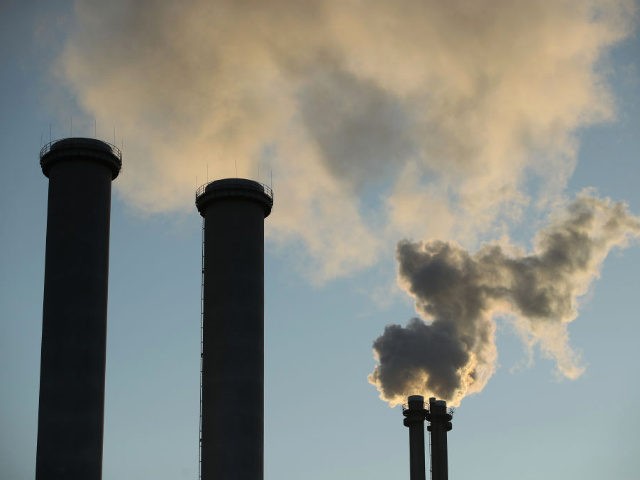The United Nations Children’s Fund (UNICEF) has released a declaration on children and climate change that completely ignores children’s number-one environmental health risk: air pollution.
In its ideologically charged declaration, UNICEF advocates for the “the effective participation of children and youth in decision making on climate change” while underscoring “long-term greenhouse gas emissions development strategies,” and yet turns a blind eye to the real killer in the form of toxic air, which has nothing to do with carbon dioxide.
As the Guardian newspaper pointed out Monday, air pollution “hurts children disproportionately,” since breathing toxic air “can stunt children’s lungs permanently, and has a long-term impact on their health, brain function and development.”
“Toxic air contributes to the deaths of about 600,000 deaths of children under five every year, from pneumonia and other respiratory problems,” the Guardian notes.
According to the World Health Organization (WHO), air pollution, measured in annual mean concentrations of fine particulate matter, “kills an estimated seven million people worldwide every year” and “9 out of 10 people breathe air containing high levels of pollutants.”
WHO also estimates that one in four child deaths “could be prevented by cleaning up the environment.”
As the UK-based Lancet journal revealed in a landmark 2017 study, air pollution and not carbon dioxide is the greatest environmental cause of disease and death in the world, and yet it is largely ignored in international ecological programs.
In its study, Lancet found that pollution-related diseases were responsible for some 9 million premature deaths in 2015, or nearly 15 times more than from all wars and other forms of violence combined.
Pollution is not only the largest environmental cause of disease and premature death in the world today, the study found, but diseases caused by pollution were responsible for roughly 16 percent of all deaths worldwide — “three times more deaths than from AIDS, tuberculosis, and malaria combined and 15 times more than from all wars and other forms of violence.”
In other words, while there has not been a single documented case of a person dying from carbon dioxide related “global warming,” real pollution of air, water and land is killing an average of 25,000 people each day across the globe.
If toxic air — and not climate change — poses a clear and present danger to children’s health around the world, why does UNICEF not address it? More generally, why does the U.N. climate convention COP25 not address it? Why did the 2015 Paris Climate Agreement never even mention air pollution in its 27-page text?
One plausible explanation for this bizarre situation is both geopolitical and economical. As WHO has shown, air pollution is concentrated in certain parts of the globe and not in others. Notably, 22 out of the 30 most polluted cities of the world are located in India.
According to its most recent report on global air pollution, WHO found that fourteen nations have a concentration of atmospheric fine particulate matter (PM2.5) over 40, and this list includes Bangladesh, Pakistan, India, Indonesia, and China. At the opposite end of the spectrum, only ten nations had an atmospheric fine particle concentration under 10, among which were the United States, Canada, Australia, and New Zealand.
In the United Nations were to turn its focus on eliminating air pollution, it would necessarily have to target those countries with a high concentration of air toxicity. By focusing instead on carbon dioxide (which is not a pollutant and kills no one), the U.N. is able to train its sights instead on the United States and other Western nations, making them the culprits even though their air is remarkably clean.
UNICEF can preach about climate change as much as it wants. But let’s stop pretending it’s about saving children’s lives, because it’s not.

COMMENTS
Please let us know if you're having issues with commenting.